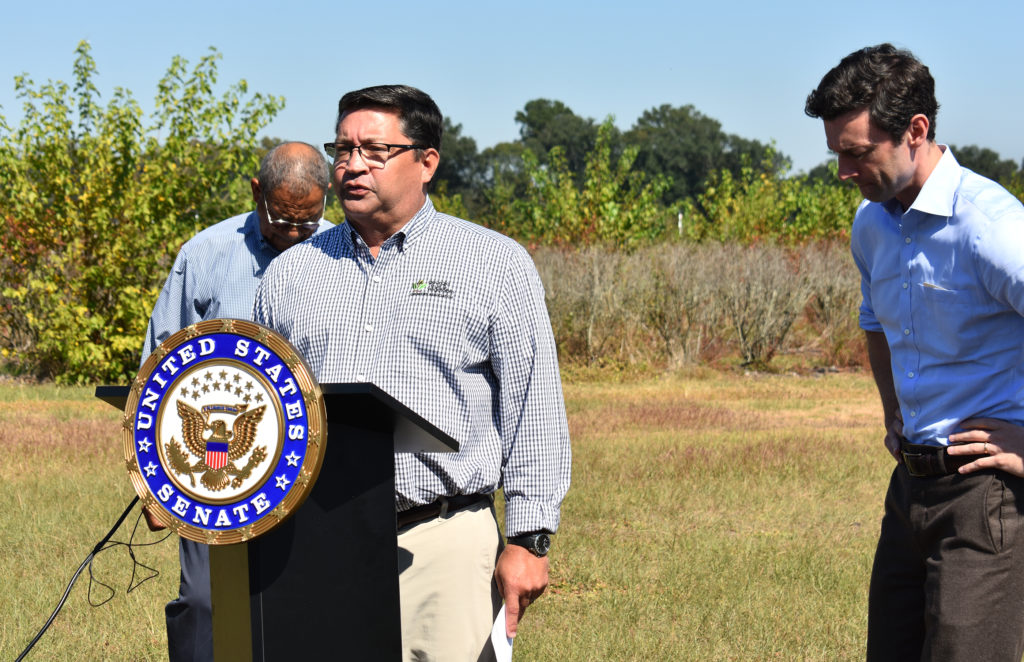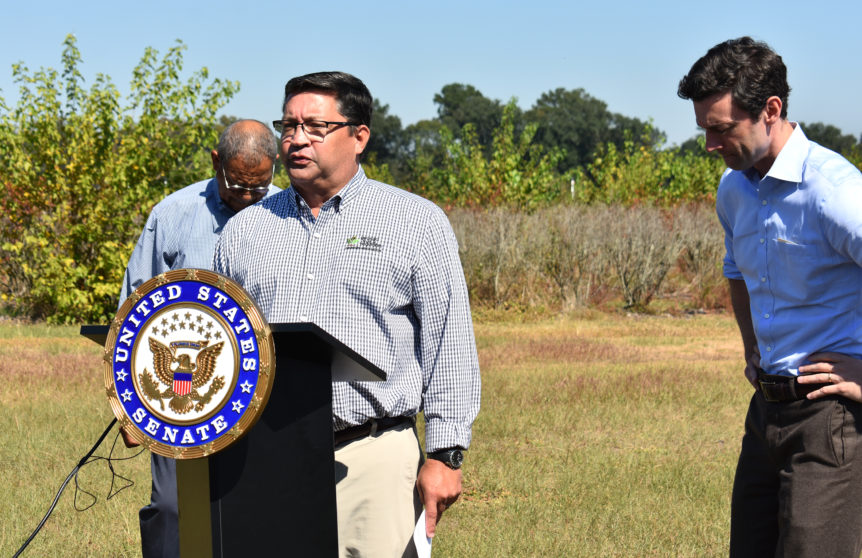By Clint Thompson
Statistics support claims by industry experts that imports are negatively impacting fresh fruits and vegetables being produced across the Southeast. It’s why Chris Butts, executive director of the Georgia Fruit and Vegetable Growers Association (GFVGA), has been adamant that legislative help is needed and why the Protecting Our Produce Act would be a good first step for specialty crop producers.

“The data from UGA (University of Georgia) shows that not only is it a problem, it’s a problem that’s growing; as those imports come in more and more directly in competition with our marketing windows. That data shows that for blueberries, for instance, it’s about $55 million to $60 million I believe, that is taken from American farms, and that’s going south, somewhere in South America,” Butts said.
Bill Background
The Protecting Our Produce Act will help Southeast specialty crop producers impacted by imports from South America. It will be introduced in the Senate and the House by Sen. Jon Ossoff and Congressman Sanford D. Bishop Jr. (GA-02) respectively. The bicameral bill would establish a five-year pilot program to provide support for producers of blueberry, squash, bell pepper, cucumber and asparagus when that crop’s national average market price falls below its five-year average price (reference price) if the difference is caused by unfairly priced imports.
The bill will benefit other areas of the country as well.
“It’s not just the Southeast where there’s a problem as evidenced by asparagus. Who would have thought that Michigan asparagus growers would be facing stiff competition from Mexico? We’re actually seeing more and more of those farms coming out of production now because they can’t compete,” Butts said.
Butts has long advocated for congressional help with rising imports ever since he assumed the leadership role of the GFVGA.
“The most tragic thing is where in areas there may not be an easy abundance of fresh fruits and vegetables for folks, when we have fruits and vegetables that are perfectly good and are rotting in the field because it’s no longer profitable for that farmer to go pick it because of foreign competition, that system is broken,” Butts said.










